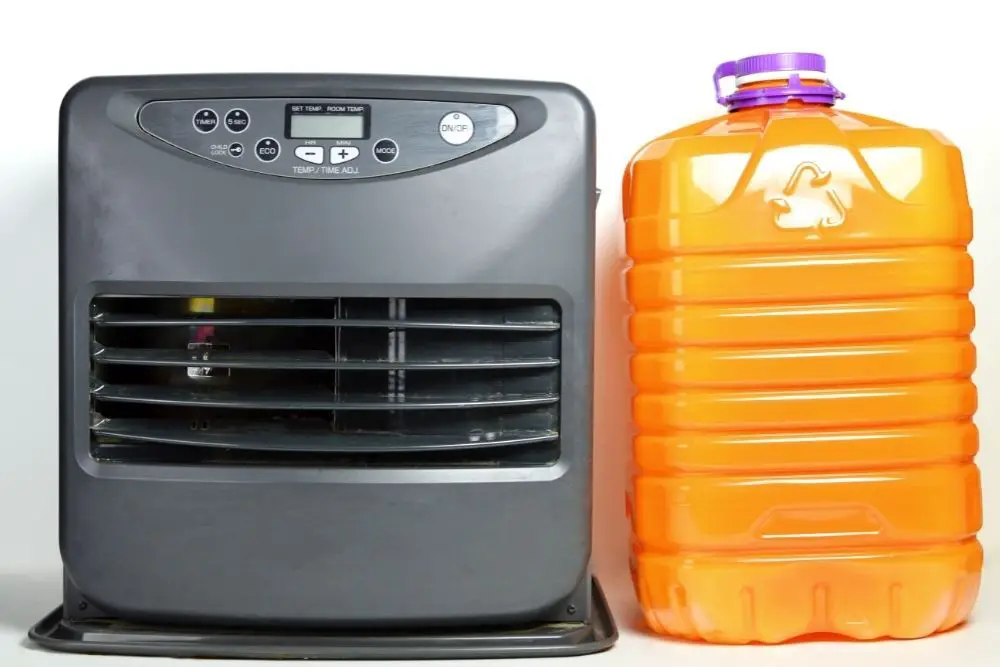Managing resources is a huge part of prepping, and storing and stockpiling is only part of this process.
Building up a varied and well-chosen supply of food and other essentials is key but making sure they last and don’t expire too quickly is really important, as your supplies becoming expired is not only a waste of money but a drain on your space and resources.
One of the most important resources for any prepper is fuel, as it can help keep your lights on, power essential equipment, and be used for bartering and trade with other survivors.
Kerosene is one of the most popular and common types of fuel and can power all sorts of things from generators to heaters, both of which are incredibly useful in a survival situation.
But storing kerosene or any other fuel for that matter is a delicate task, and making sure your fuel lasts as long as possible, as well as when it’s expired is key to maximizing your resources and ensuring that your resources don’t ruin your important equipment.
In this guide, we’re going to look at how long kerosene lasts, as well as when it expires, how to extend the use of your kerosene and other important tips for storing and using kerosene in a SHTF situation.
But first, let’s take a look at if kerosene expires at all.

Does Kerosene Expire?
Yes, kerosene can expire, and while it can last for a fairly long time if stored correctly, eventually it will come unusable or lose its effectiveness.
This can make storing kerosene difficult and clear monitoring, rotation, and tracking of your fuel key to ensure that nothing is wasted.
There is a lot of debate and wildly different estimates for how long kerosene lasts and this can make planning very difficult. Some people say kerosene can only last for a few months before going bad, others claim that kerosene can still be used after 20 years in storage!
This is a massive difference and ultimately, the truth lies somewhere in between these extremes as is so often the case.
Kerosene can very often be used after 6 or so years of storage, even if stored in a very basic manner.
It will usually keep for at least 5 years, and if stored correctly, it could potentially last even longer than 6 years, however, you may start to see less effectiveness or other potential issues, as impurities and other matter builds up in the fuel which could eventually harm or hamper your equipment, whether it be a heater or generator.
In short, yes, kerosene expires, but it can last a considerable amount of time if stored well and while this is the blink of an eye in life, 5 years is still a decent amount of time if your fuel is rotated out and managed correctly to reduce or eliminate wastage.
How Can You Tell If Kerosene Has Expired?
Interestingly, kerosene is actually one of the more reliable fuels when stored, and is less likely to expire than gasoline or diesel, as it doesn’t tend to absorb water and other unwanted materials from the air in the same way as gas, and doesn’t need to use fuel stabilizers or other additives to keep the fuel.
When kerosene starts to expire, you will notice a change in the coloration of the fuel, as it starts to become cloudy and hazy or take on a yellowish hue.
Another sign can be a sort of sludge that starts to grow in or upon the fuel, and this is often biological material that is developing due to various impurities that have started to thrive in or on the fuel.
It’s best to avoid using kerosene if you’ve noticed these signs of expiration, as they could damage the heater or generator you’re using.
However, if you’re in dire need of fuel and have no other option, you can try filtering out the sludge and impurities before using the fuel to minimize the potential issues that expired fuel can cause.
If your kerosene has started to smell strongly of other fuels such as gas or diesel, it is probably too bad to even filter and should only be used as an absolute last resort in the most extreme situations.
How To Make Kerosene Last Longer
Extending the lifespan of your kerosene is actually not as difficult as trying to extend the life of other fuels, such as gasoline, and is one of the big reasons why kerosene is so popular as fuel among preppers and survivalists.
Kerosene is much less likely to absorb water than other fuels as we mentioned earlier, and this means it can be stored safely in standard metal or plastic containers without too much worry about its longevity or the effects this will have.
It is thought that storing your fuel at cooler temperatures is better and can help with longevity, as this will inhibit the growth of organic matter that can spoil your fuel as mentioned earlier.
If you do notice your fuel starting to go bad you can mix it with some fresher kerosene to help stave off the bad effects of expiring kerosene, and should also keep it in sealed containers to discourage organic growth.
Where Can You Purchase Kerosene?
Kerosene can be purchased in hardware stores, Walmarts, and potentially some gas stations, making it quite readily available.
If you’re in doubt make a note of the various places selling it so you know where to turn in a pinch and know where to scavenge should SHTF.
Not all stores or stations will have kerosene available, so making a note of the ones that do and stocking up well is the best way to ensure you have the fuel you need should the worst happen.
What To Do With Expired Kerosene?
If your kerosene is too far gone, you need to know how to dispose of it properly to avoid damaging your property as well as potentially putting yourself at risk.
Kerosene is a chemical that needs to be disposed of with some care as it’s dangerous and can’t just be dumped anywhere, as it will affect soil and animals and can do serious harm to you or the environment.
The best way to dispose of it is via a hazardous waste disposal point which is available in some cities or to take it to a recycling facility that specializes in old fuel.
When disposing of hazardous fluids and fuels, always remember not to mix fluids as this can prevent your fuels from being accepted and can make them more volatile and dangerous.
Also, keep the fluids inside their original container as this helps the disposal team to know what they’re handling and where it needs to go.
Also, some gas stations and auto shops may take your old fuel for you, as long as you request ahead of time. Not all places will offer this but some will and it’s often more convenient than anything else.
Kerosene will evaporate eventually if you allow it, however, this should only be done as a last resort and for a small amount of fuel, as the vapors can be harmful and dangerous.
Leave the container somewhere well ventilated and clear of animals and people to prevent issues.
Can Kerosene Be Used Indoors?
Absolutely, yes! Kerosene can be used to heat homes and has done so for decades without issue.
It’s one of the main fuels in the world for heating and light, and is still used widely.
This is because kerosene gives minimal fumes and is what makes it such a popular choice among preppers. It is quite long-lasting, relatively easy to dispose of, and isn’t capable of giving off a lot of dangerous fumes.
Always make sure you’re using a well-maintained heater, and have a carbon monoxide detector available and working just to be safe, however.
Can Kerosene Heaters Be Left Unattended Or Overnight?

This is the tricky part. Kerosene heaters are pretty safe generally, but accidents can happen and heaters or lamps which use kerosene can cause a fire if left unattended or while sleeping, which means they are best turned off when not being monitored at all.
Can Other Fuels Be Used In A Kerosene Heater?
Yes, it is possible to use some fuels such as diesel in a kerosene heater but this may affect the longevity of the heater and potentially lead to it breaking down.
Are Kerosene Fumes Dangerous?
The fumes themselves are among the least dangerous of the main fuel types, but precautions should still be taken to prevent issues, so always use a carbon monoxide detector.
How Long Does K1 Kerosine Last?
Typically this can last for around 5 or so years, the same as other kerosene. It is much the same as generic kerosene and can become impure and require filtering.